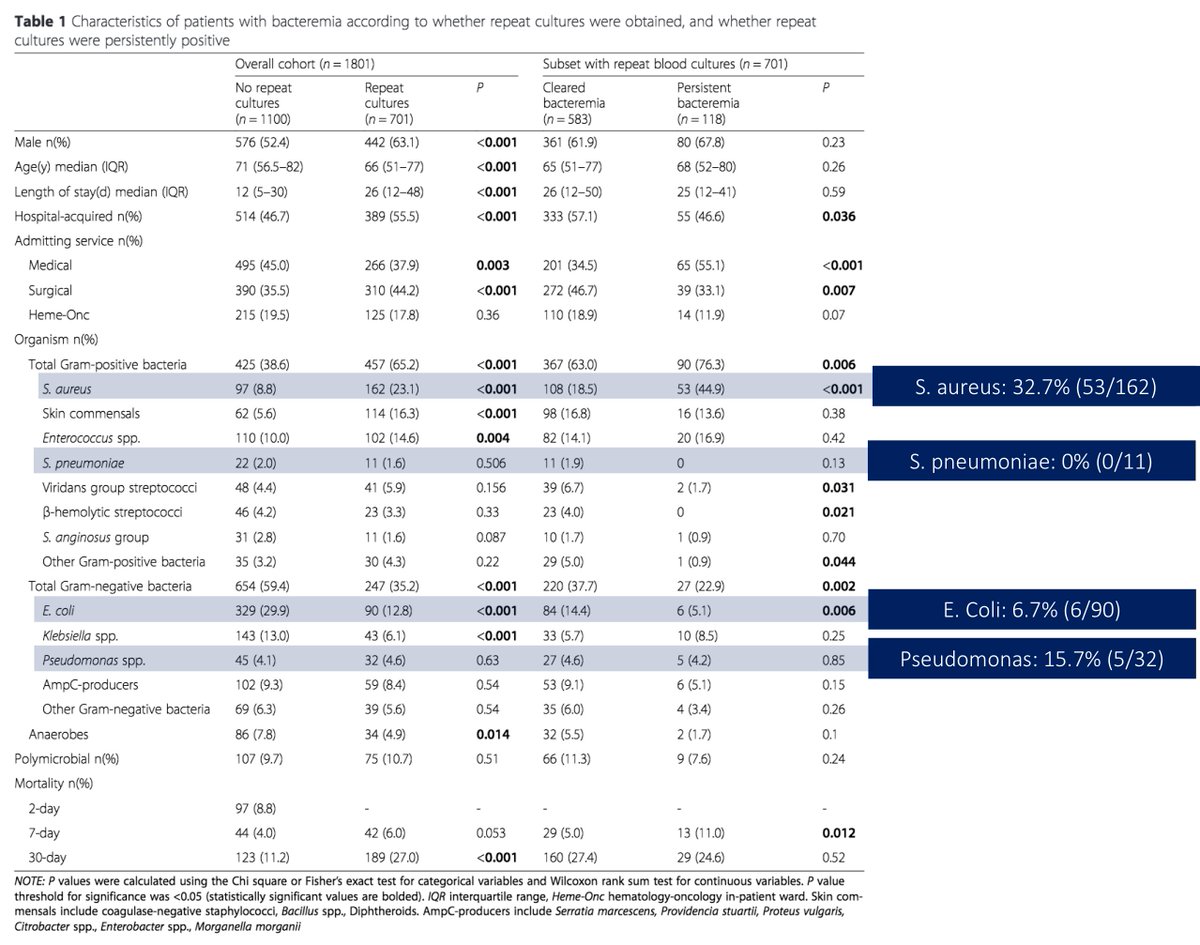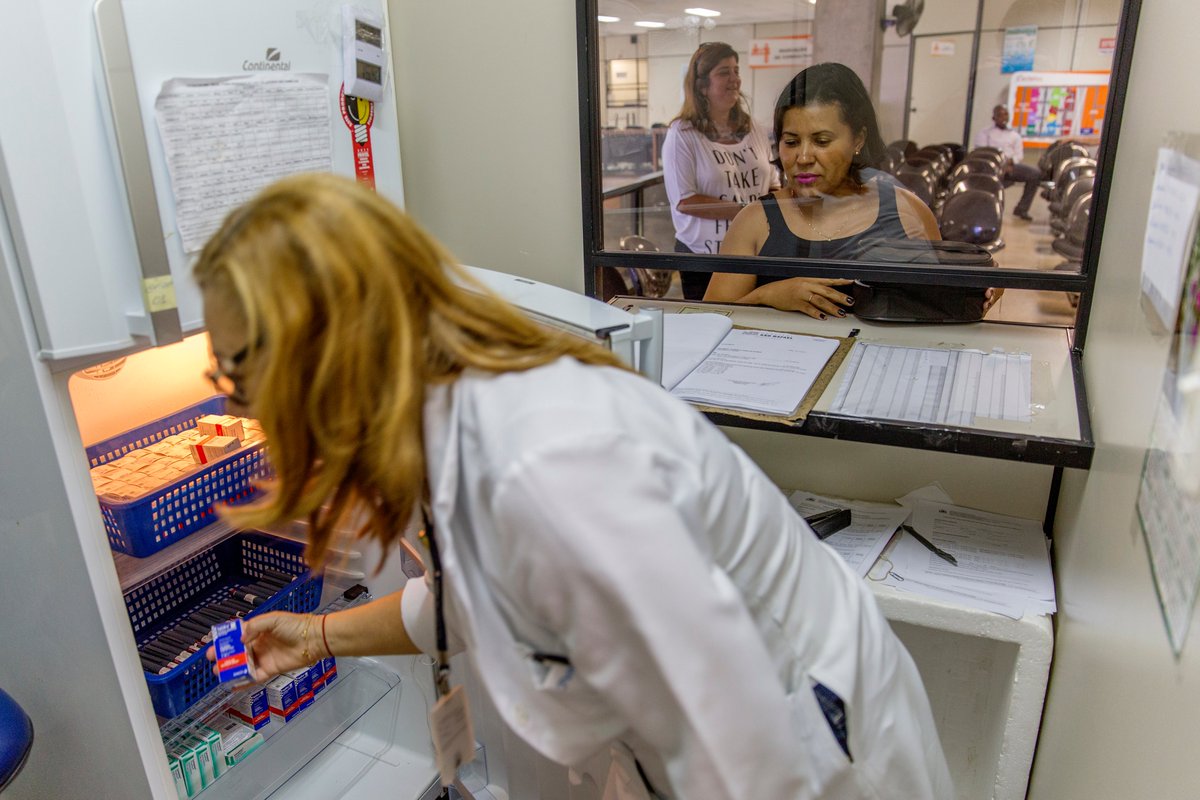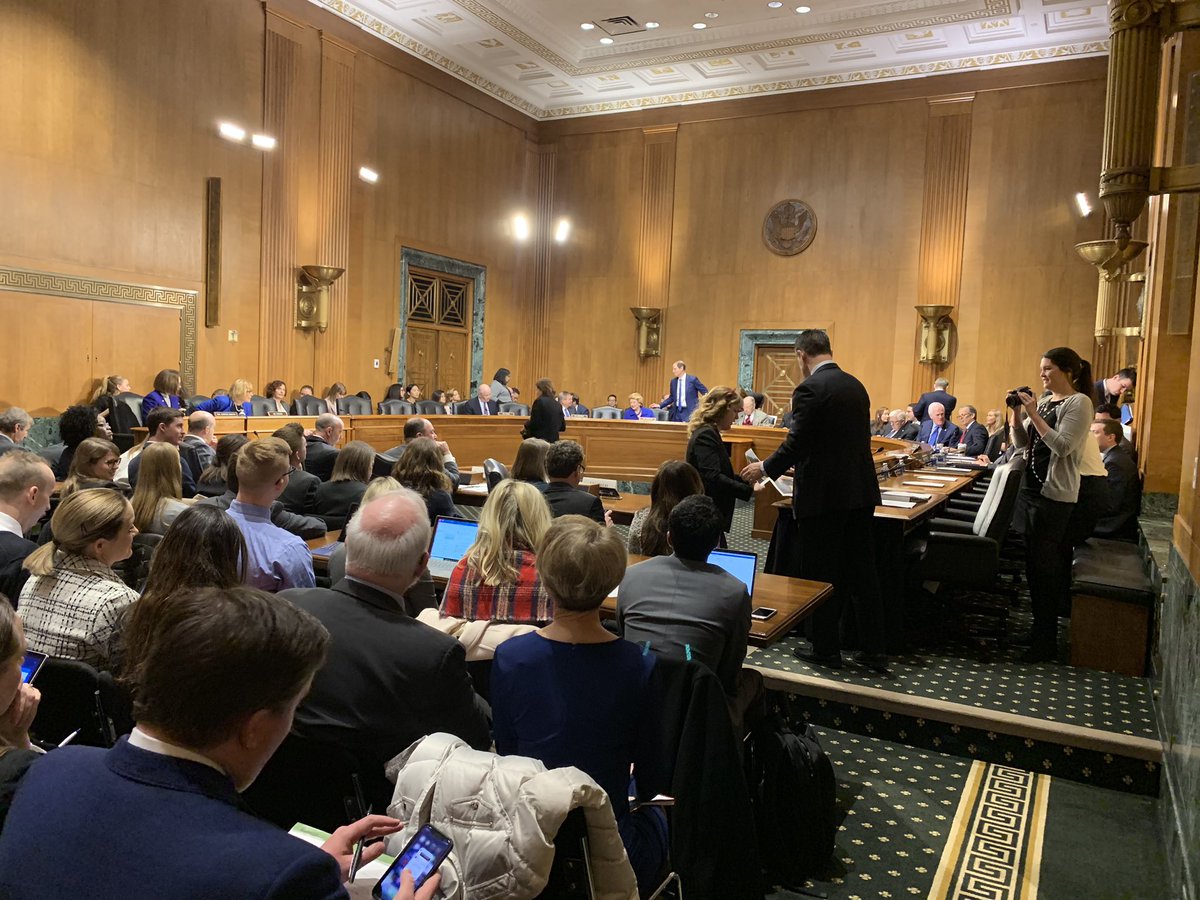Why isn't insulin administered orally?
Most of our medications are taken by mouth. Not insulin.
What do you think... what is it about insulin that makes the oral route so hard to achieve?
To understand the answer, we must recall a few properties of insulin:
• it's a peptide
AND
• it's pretty big (5.8 kD)
These properties lead to (1) degradation within the gastrointestinal tract and (2) poor oral bioavailability.
ncbi.nlm.nih.gov/pubmed/3526553
Let's look first at the degradation of insulin.
Within a few years of its discovery in the early 1920s, Dudley reported that pepsin and trypsin digested insulin.
Interestingly, this same study found that acid had no effect.
ncbi.nlm.nih.gov/pmc/articles/P…
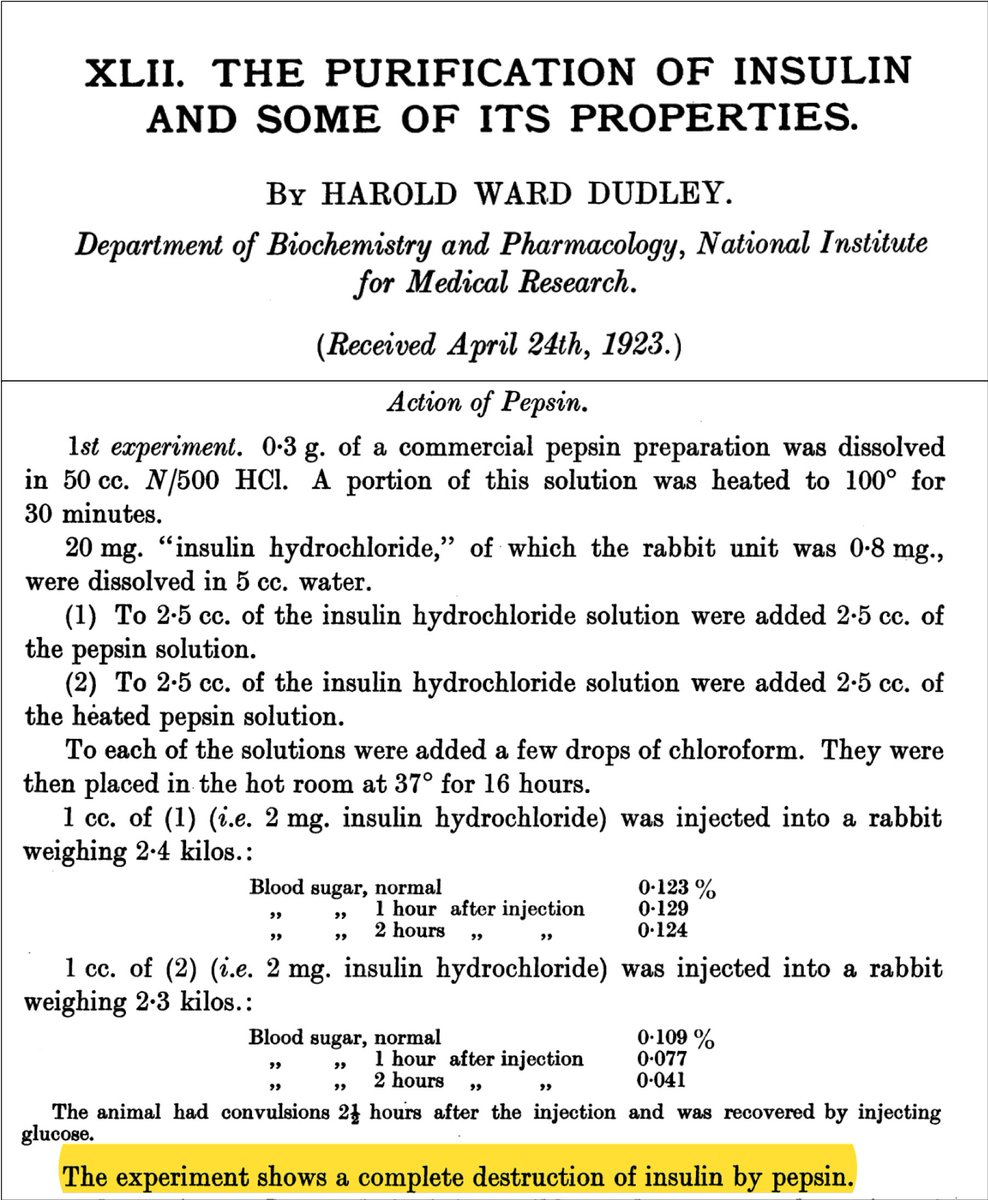
This property (degradation in the GI tract) is not unique to insulin. It is true of other peptide medications.
Look at the Table. These peptide medications have something in common: they are NOT typically administered orally.
ncbi.nlm.nih.gov/pubmed/28720325

Insulin also undergoes proteolytic degradation in the blood.
This contributes to a very short blood half-life (<10 minutes). And another barrier to practical oral administration.
ncbi.nlm.nih.gov/pubmed/4935637
Peptides like insulin aren't just susceptible to degradation. They are also too big to for gastrointestinal absorbtion.
Molecules >500-700 Daltons are not well absorbed.
Remember, insulin is ~5800 Daltons.
ncbi.nlm.nih.gov/pubmed/2235883
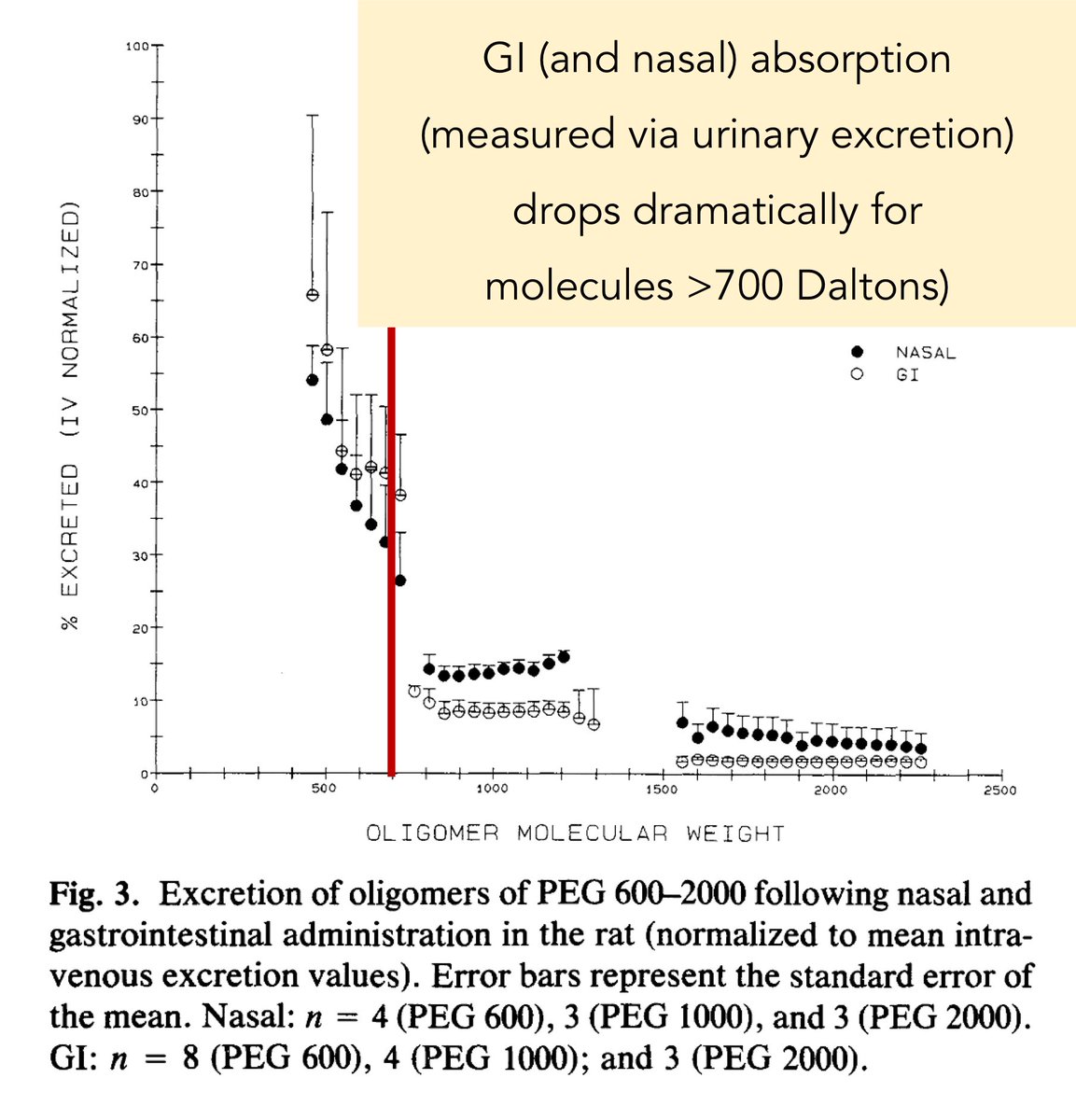
Again, it is helpful to look at other large peptides for comparison.
Notice in this Table that as size increases, oral absorption decreases.
And, notice that we don't administer those larger molecules (e.g., interferon, albumin) orally.
sciencedirect.com/science/articl…
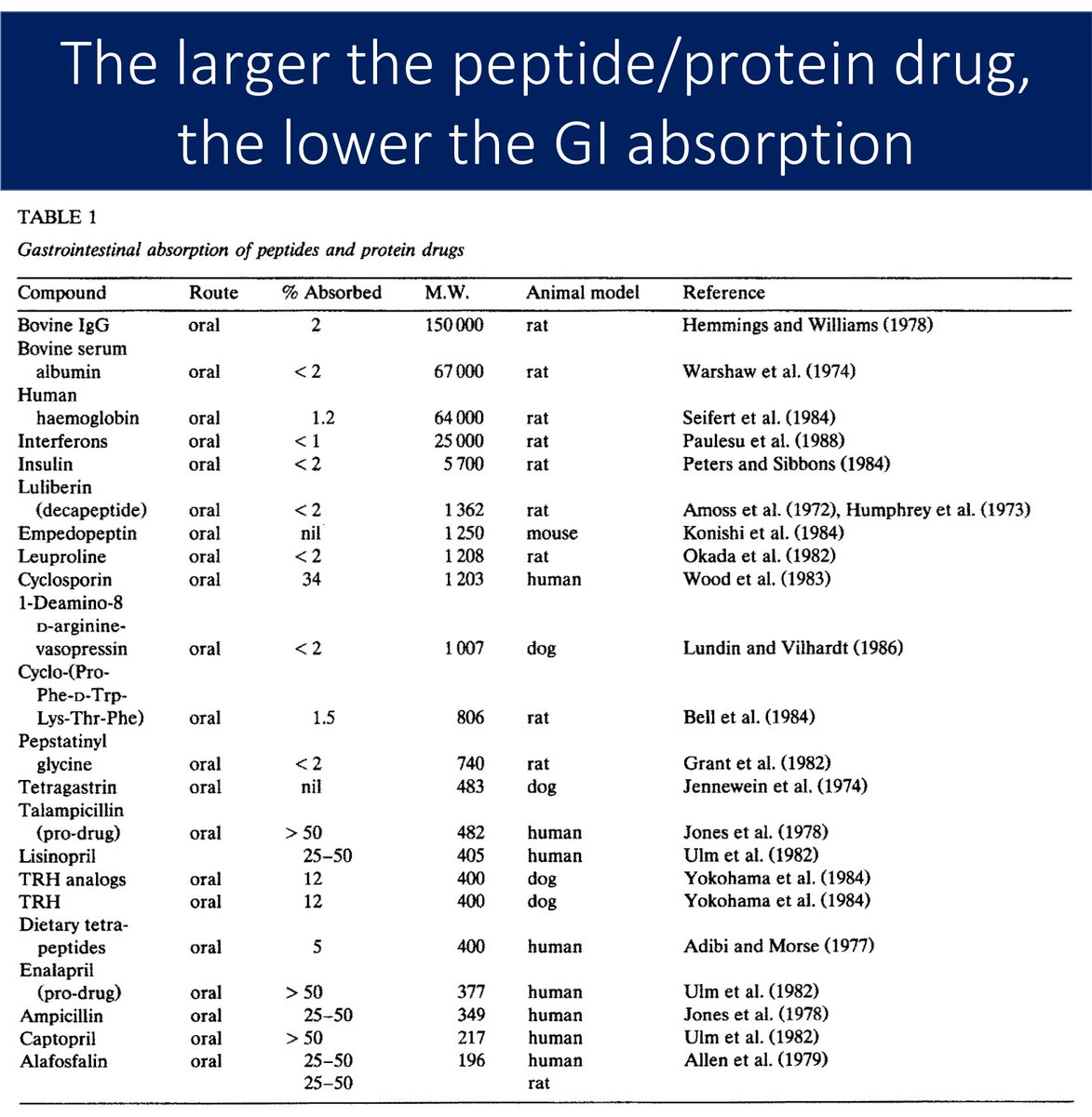
Insulin has other problems. It is hydrophilic and too big for paracellular absorption
💥this adds to its poor GI absorption.
But, insulin is also not so big that it isn't filtered by the glomerulus.
💥this leads to rapid renal clearance.
Unsurprisingly, there have been attempts to get around the barriers to oral insulin administration.
Thus far, we haven't been able to successfully overcome them.
ncbi.nlm.nih.gov/pubmed/27364922
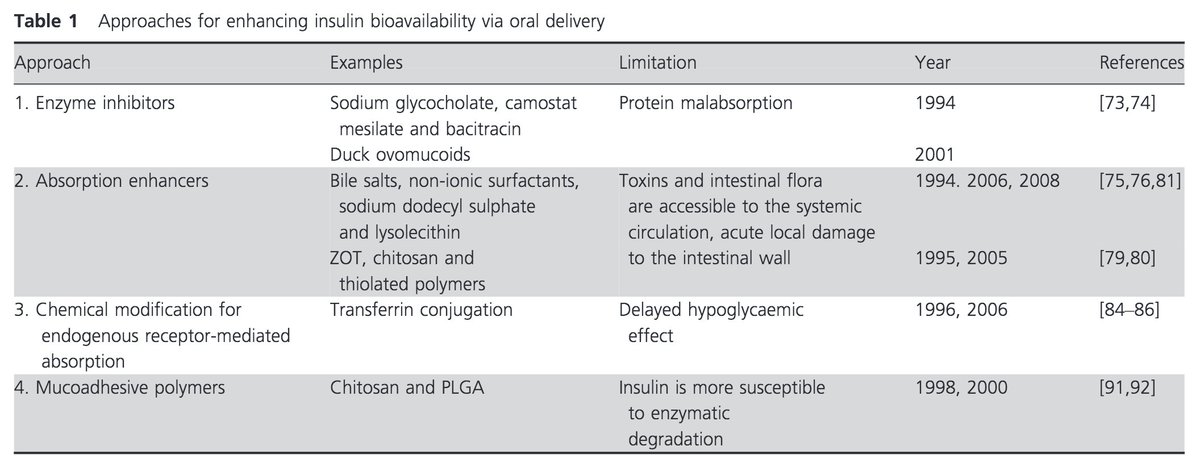
Before closing, let's ask the original question once more.
What is it about insulin that makes the oral route so hard to achieve?
➣ Insulin is a peptide that undergoes proteolytic degradation in the GI tract and blood
➣ Its large size limits oral absorption
So, how does SC administration work? That'll be answered in a future tweetorial.





